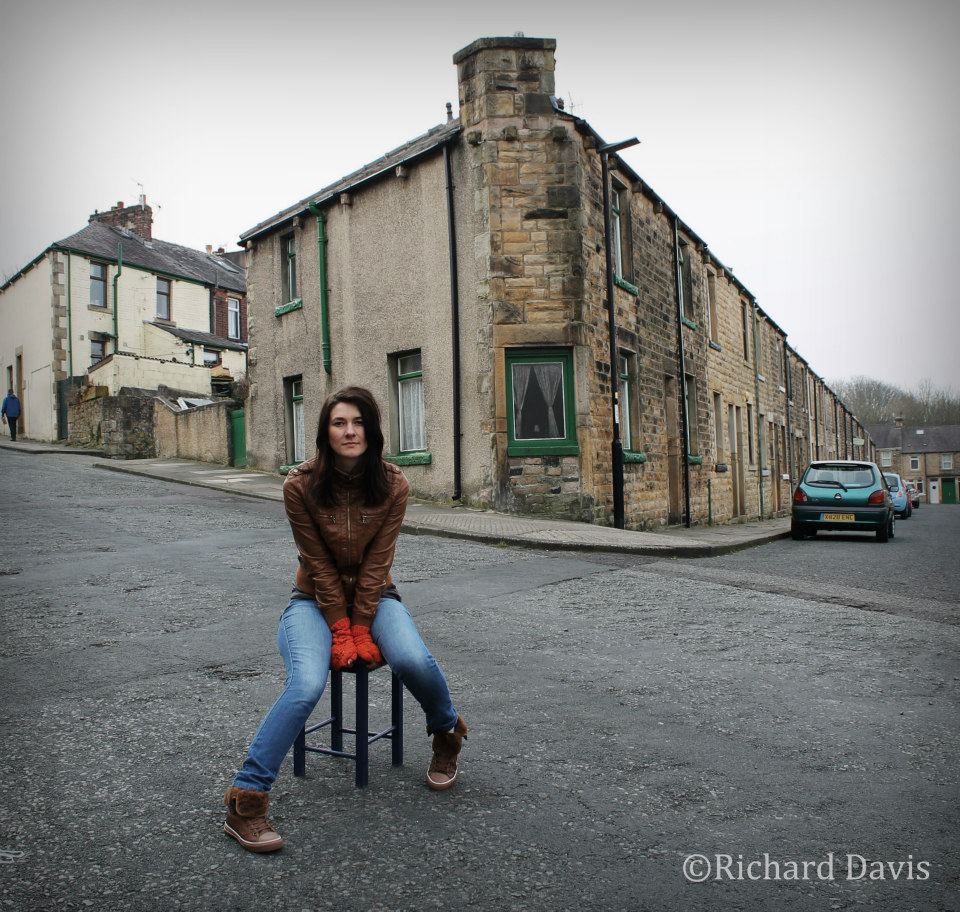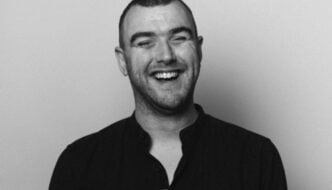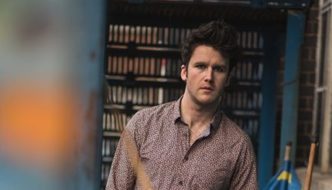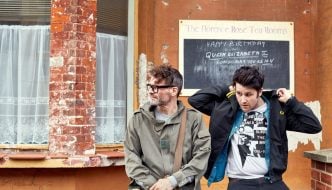 We’re about to launch your Council House Poetry collection in Leeds. Bird St. and Love Is a Battlefield are actually two separate albums. Was it a conscious decision to combine them under ‘CHP’, or did it happen organically?
We’re about to launch your Council House Poetry collection in Leeds. Bird St. and Love Is a Battlefield are actually two separate albums. Was it a conscious decision to combine them under ‘CHP’, or did it happen organically?
It was the best sort of decision – artistic yet pragmatic. I wanted to do Love Is A Battlefield at the Edinburgh Fringe as a solo show but it was too short. I had a lot of other material in Bird St. and the poetry set the wider scene and about how I grew up and ended up in a relationship with a soldier and added some lighter stuff. A lot of people on the arts scene didn’t seem to get that. Initially Council House Poetry was a show combining the two collections and I guested other poets I loved, with similar backgrounds and scrubber things to say, such as Jackie Hagan, Matt Miller, and Thick Richard.
The LIAB album was the result of a BBC New Voices commission, and features musical backing from Lee Affen. How did you find the process of working with a musician? Do you prefer it to a capella recordings, or are they totally different?
I love working with talented musicians and I would have a version of my work with music every time if I could. Lee is amazing because he’s got a talent for underscoring the work like a film script and understanding the heart-breaking bits. My part in the musical collaboration was to say ‘I want some filthy beats here, please’ and Lee was like, ‘if you’re sure…’ The beauty of a capella spoken word is that you can perform anywhere, in any conditions, all impromptu and glorious. It’s where I started and what anyone can do in their bedroom or on the bus.
Being a Northern working class writer and performer can sometimes feel like a bit of an uphill struggle on the poetry and spoken word scene. Have you personally noticed a change since you started, in terms of bridging the gap with the establishment?
My relationship with ‘the establishment’ is not high on my list of priorities really. The New Voices commission and mentoring with the BBC has been very useful to me in terms of deferred prestige and I genuinely felt Ian McMillan and the team on The Verb wanted us to succeed.
Then at other times, outside of the North, you feel like a performing monkey or a bit of a freak show with your odd vowels. I’ve had audience members approach in Brighton and say they honestly couldn’t understand what I was saying but liked it anyway — ha. Mostly I like people and I focus more on how we are the same rather than worry about how class or accent might disadvantage me. I’ve not really found it a struggle but maybe that’s because I know what a struggle is, and that’s surviving on benefits, working in dead end jobs and there being no way out. I’ve done all that- you can hardly call poetry a struggle.
The title Council House Poetry immediately goes against the grain of what most people might expect from a poetry collection. Do you revel in changing peoples’ perceptions, or do you just write as you see things irrespective anybody else?
I just write how I see things. When I was doing the show in Edinburgh I sort of hoped other ‘council house’ artists and audiences might come and see my work and recognise some of their own experiences perhaps. Now I hope people buy the double album and smile wryly at similar things. Council House Poetry is a bit of a call out to people like me! It’s also a small two fingers to shows like ‘Benefits Britain’ which are divisive and inaccurate and make me sick at the power of the media.
It seems obvious to ask about influential poets, so I’d like to know if any writers from other art forms — lyricists, novelists, screenwriters — have inspired you? And if so, who?
I’d much rather answer that question. I’ve been inspired by the lyrics of The Smiths, Placebo, The Streets, Marylin Manson, and Lily Allen. I love the juxtaposition of dark thoughts and humour. That’s what I go for in my work a lot of the time. I love dystopian fiction and plan to write my own dystopian novel — it should be super-easy living in these times. The language of Clockwork Orange and The Handmaiden’s Tale are phenomenal. I’d also like to recommend Maggot Moon, which I read recently. My last two children’s poetry shows, The Woman Who Turned Into An Eyeball and Robot Aliens Stole My Ipig have been set in space/ almost sci-fi which I think is my teenage obsession with science fiction returning to haunt me. My second collection, Nightclubs in a Nothing Town is due to be released as a book by Burning Eye in 2017 which is, in part an exploration of ‘Lolita’ — the language in that is awesome.
Nymphs & Thugs is looking to showcase the best spoken word talent from around the UK, both with releases and also through digital channels. Are there any poets in particular which you’d like to recommend?
Obviously two of my label mates, Toria Garbutt and yourself, are very special talents! Tori is soulful and sexy and dark and funny, and you have something important to say in a very beautiful, cool way. Outside of Nymphs and Thugs I like Thick Richard for festivals, Mandy Coe for reading and Sophia Walker is a bit of a performance powerhouse.
Finally, I’ve heard a rumour that Jarvis Cocker likes to listen to Romantic Love Poem before he goes to sleep at night. If you were going to take him to a supermarket, which chain would it be and why?
I’d take him to Morrisons. They do individual lamb chops. As a single parent, I am a fan of this. (He’s not a veggie, is he?) I wrote that saucy little number after being in the same actual room as him at a BBC networking meeting in Landon. I had a little chat with Cerys. I have not done anything productive with this piece of networking other than write a stalker poem. This. This and Morrisons is my glamourous existence.
You can follow Louise at @louisethepoet and find out more about Nymphs and Thugs at nymphsandthugs.bandcamp.com. Council House Poetry launches on Friday 9th September at Eiger Studios, Leeds. Get your tickets here.




Comments